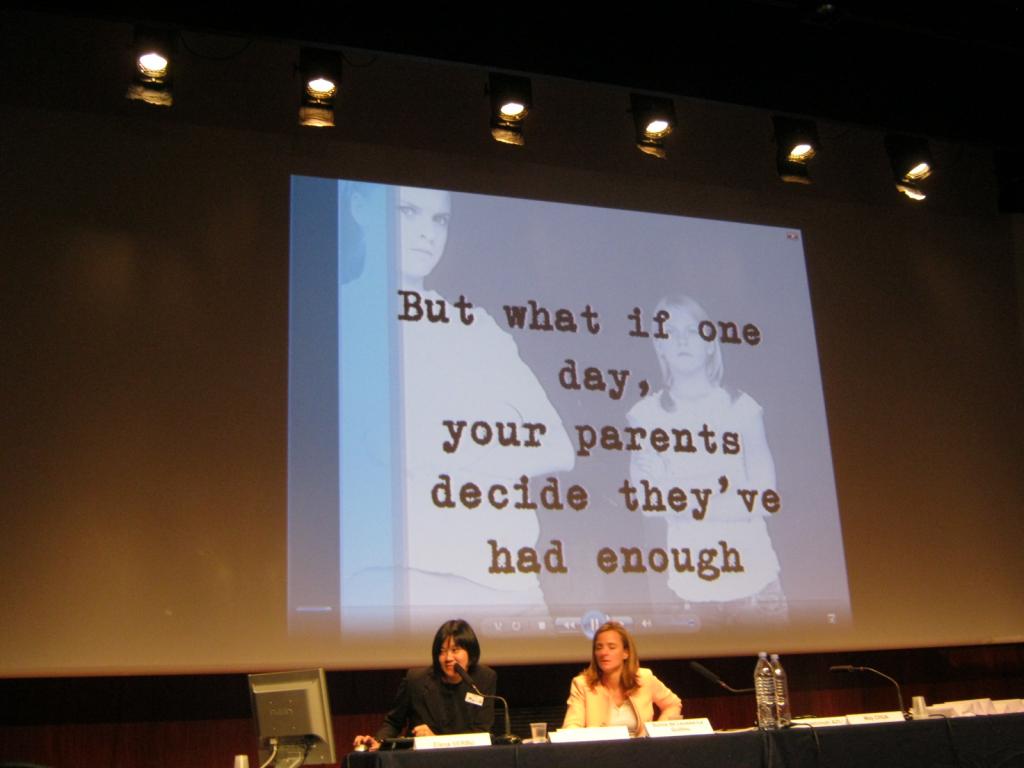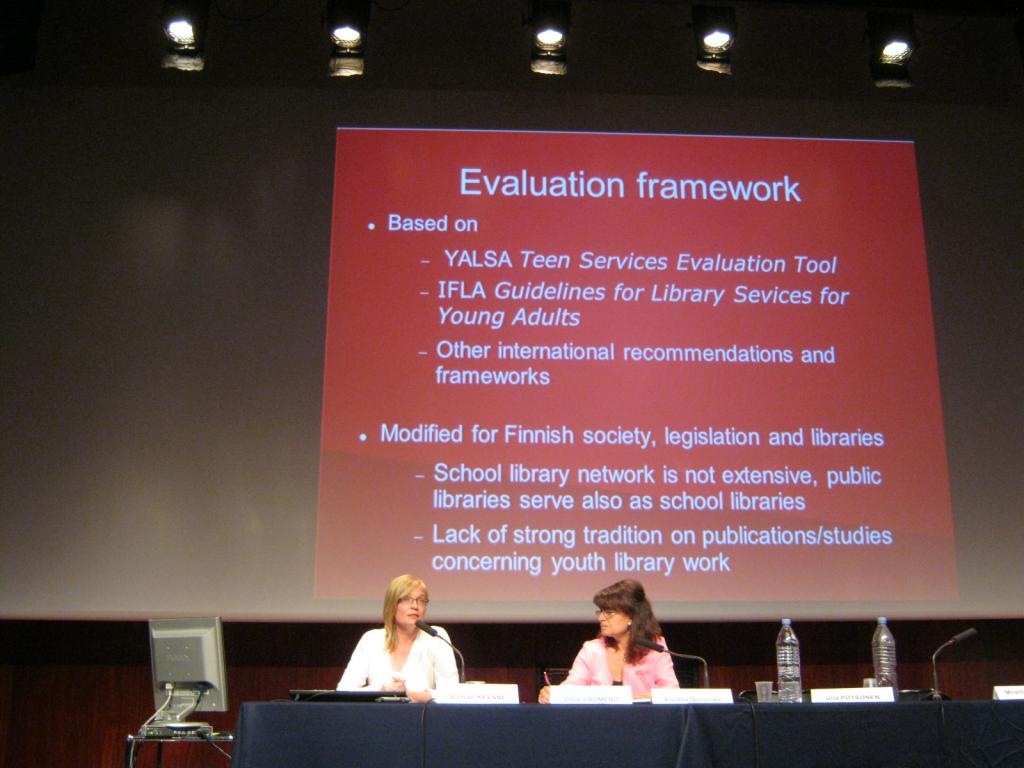Review on Section’s Satellite meeting in Paris, 2014
08 June 2015

“15 to 20 year olds reading across the world: Why? Where? How?” IFLA Satellite Conference in Paris 2014 – Review of a participant
Satellite Conference organised by the Libraries for Children and Young Adults Section & School Libraries Section was held at Bibliothèque nationale de France (the National Library of France) in Paris on 23rd August 2014.
The full programme was dedicated to a topic of current interest: the reading of the adolescents and young people between 15-20 years old. The presentations during the conference were divided into four thematic sections. In the morning, studies, questionnaires and surveys were discussed along with tools to measure the reading preferences of young people and also the programs and collections created and designed to attract the public to read. The second part of the day was devoted to the way in which stakeholders are participating in programs for young people and ways of assessing the impact of reading.
The introduction to the conference was by Sonia De Leusse-Le Guillou, Director of Lecture-jeunesse, who discussed the changes in reading preferences among young people with the preference for digital reading and other media, although there are cultural differences between countries. She also expects an increased interest in literature and a public policy mainly oriented to support the reading programs for the young people.
Thematic Sessions
Situation and representation of places and practices for 15-20 year olds’ reading
In the first thematic section on Situation and representation of places and practices for 15-20 year olds’ reading, the reading practices of young people were described by statements measured statistically based on different case studies. Denice Atkins from the USA presented a paper on what we can learn about students’ reading habits and library use from PISA (Programme for International Student Assessment) 2009. She discussed data on the existing situation in European countries, with observations on young people’s predilection for reading newspapers and magazines and for navigating on specific websites and social networks. The data suggest that libraries need to use the social networks to promote reading and books. At the same time, Denice Atkins noted the social differences indicated by the reading practices: the rich students read while the poor ones prefer video games and music. That may deepen the cultural, social and digital discrepancies, and public libraries are the resources that are needed to be called into the fight against this. Chinemmemma Ugonna Umeh from Nigeria presented data on young people’s reading habits in her country. A questionnaire revealed that young people do not have the habit of reading, they only read the educational materials needed in school, during their school studies. The analysis shows that they prefer Facebook and television, and 70% of what they are interested in are the music programs and channels. In addition, what is specific to local society and culture – the mainly oral transmission of culture and the lack of older generations ability to communicate knowledge and information to the young people – had as a result a less frequent habit of reading. For this reason, a presidential campaign was initiated in Nigeria, called Back to the Book, which supports reading, promotes the book and the written word among young people. Librarians and libraries are becoming more and more involved in this successful campaign.
Collections and programmes to render reading visible and attractive
The second thematic section focussed on Collections and programmes to render reading visible and attractive. This included three interesting papers presented by Elena Åerbu (Romania), May Chua and Norhsashimah Azli (Singapore), and Maria Cahill and Jennifer Richey (USA). The Romanian presententation described the programs and activities with young people organized in a small town where the library is a community center with educational opportunities. Singapore drew attention to its project of public readings for the adolescents held in schools, with the teachers’ involvement. In this campaign, the staff of the National Service for Books and Reading in the Ministry of Culture used music and digital media (like DiscoveReads) or gamification to promote the books. They also created booktrailers and upload them on the YouTube based on open creative licenses (creative commons) or put on stage horror stories performed by librarians wearing masks. The American speakers Cahill and Richey examined the question of legitimacy of the audio books as reading material, carefully and from different perspectives. The morning session ended with a video broadcast of an interview between the American writer Kate DiCamillo, a National Ambassador for Young People’s Literature in the United States and Lisa von Drasek, Curator of Children’s Literature Collections, University of Minnesota Libraries. The interview was really inspirational for all those present and can be viewed online.
How all actors participate in programmes for 15-20 year olds’ reading
The afternoon sessions were introduced and chaired by Viviana Quinones, Chair of the IFLA Libraries for Children and Young Adults Section. In the third thematic session How all actors participate in programmes for 15-20 year olds’ reading, Cynthia Houston from the USA presented a way to involve young people in a new read-write environment by MakerSpaces in the library. Considered as the third space, they are flexible and virtually change the character of the library, adding a new dimension and giving the opportunity to develop their own activities. Alex Williams from Australia presented the Accidental Book Club about getting teens interested in reading without really meaning to. Working in a less structured, more reactive and spontaneous way has resulted in the surprising outcome of students engaging with leisure reading. Blanche Wolls and David V. Loertscher presented an innovative project of wikiscribi and global literacy, proposing a mobile phone application through which young people could publish their creations in their native language on a dedicated platform.

How do we evaluate the impact of reading and its progress
The final thematic section How do we evaluate the impact of reading and its progress included very interesting papers both through approach and perspective. Michael Kevane analyzed the reading consequences in terms of economic behavior adopted by young people in rural areas of Burkina Faso, finally concluding that there is no direct change in attitude in connection with the reading promotion. Chiara Ramero from Italy presented the reading workshop and the various activities with students and young people studying French language in the schools from Italy. Various modalities of promoting the book – clubs, shows, creative writing workshops, TV reports and videos – amply demonstrated the importance of creativity as a mean of stimulating the interest in reading. Finally, Ulla Pötsönen from Finland presented the Finnish experience in adopting criteria for assessing the quality of the library activities designed for young people. These were initiated and requested by the librarians and the Finnish Library Association constituted a working group that translated and adapted an ALA applied standard, creating new principles, criteria and standards and innovating according to the requirements of libraries in Finland.
The Satellite Conference in Paris was full of ideas and examples that can be turned into good practice. The 100 participants and librarians who attended the conference listened attentively, posed questions and left inspired with new ideas.
Ruxandra Mosare
Member of Standing Committee, IFLA Section Libraries for Children and Young Adults
”George Baritiu” Library, Brasov City Library
Romania